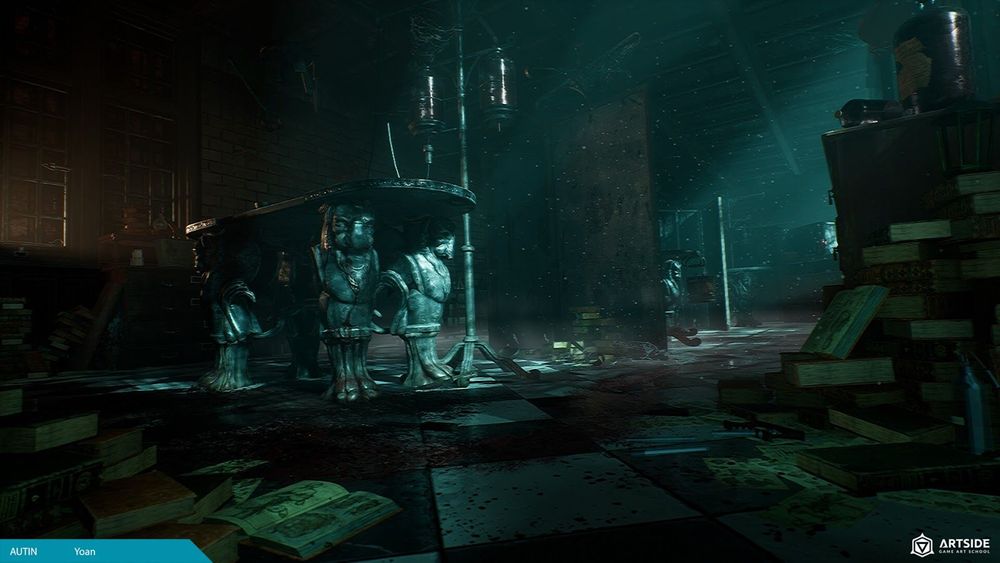
Starting a Career in 3D Environment Game Art
Want to start a career as a 3D Environment Artist? Check out this article featuring Artside School alumnus, Yoan Autin, for some inspiration.
Yoan Autin is a 29 year-old Artside School alumnus and Environment Artist, working on Warframe at Canadian game development studio, Digital Extremes.
In this article Yoan gives us some insight into a typical day as an Environment Artist, as well as a few tips for getting started in the Games Industry.
I’m a 3D environment artist. This involves the creation of all elements you can see in a video game that is not a character or FX. I would be creating a victorian desk, an old mountain, the Natural History Museum, an alien base, etc.
I work at Digital Extremes on the video game Warframe.
From my young age I have loved all these fantasy worlds I found through games: Dungeons and Dragons, Diablo, Stracraft, Elder scrolls, etc.
Blizzard’s cinematics in particular, were so nice that I knew I wanted to give back the pleasure I had when I saw them, by working in the industry; it was at the end of high school that I decided to be a 3D artist. Before that, I didn't think I could be an artist. Only when I tried a 3D software for the first time, that I knew I could make a career in games if I could get enough work.
With Artside School. Before my studies at Artside, I only worked on a small project and with an amazing indie studio named Iumtec Studio. Unfortunately this studio had to close and so I embarked on a year practice at Artside School.
The instructors art Artside gave me so much advice and created opportunities which allowed me to connect with so many professionals from various studios.
This is how I learned with Lionel Cregut, an amazing environment artist working at Digital Extremes at that moment. He pushed me to try the Digital Extremes art test and now, here I am!
I studied 2 years of IT programming and a year of 3D. The years of IT programming were not entirely useful for me, but it taught me how a better understanding of troubleshooting and working with my tools.
I work in France for a Canadian company, so we have a 6 hour time difference. A classic day would be to see the team in the morning, speak about work and do the work for the rest of the day. I have to work differently because of the time zones we share with our Canadian counterparts - I start my day by working on the objects we made notes on the afternoon prior, reviewing the assets again in the afternoon when I get more feedback.
My main tool is Blender. I also use Pureref, Substance 3D Painter, Photoshop, Marmoset and Zbrush.
It depends on the work that needs to be done. The most common workflow is to take all concepts from Pureref and start modeling in Blender. Besides that, I create UVs in Blender, give the model the right vertex paint, create basic a mesh for collisions, and then send it all to the engine.
An Environment Artist needs to work closely with Concept Artists, Level Artists and the Art Director.
The infinite possibilities of worlds I can create. I have to learn a new subject all the time: historical period for a game set in the 15th century, physical science for a sci-fi game...all the time we have to learn, and this is so nice!
No. All studios need only one thing from you: to do your job. If your dream is to have a career in this field, you can do it by yourself. For sure, a great 3D school will help you, mostly because it gives you a framework, the advice you need, and the the right connections.
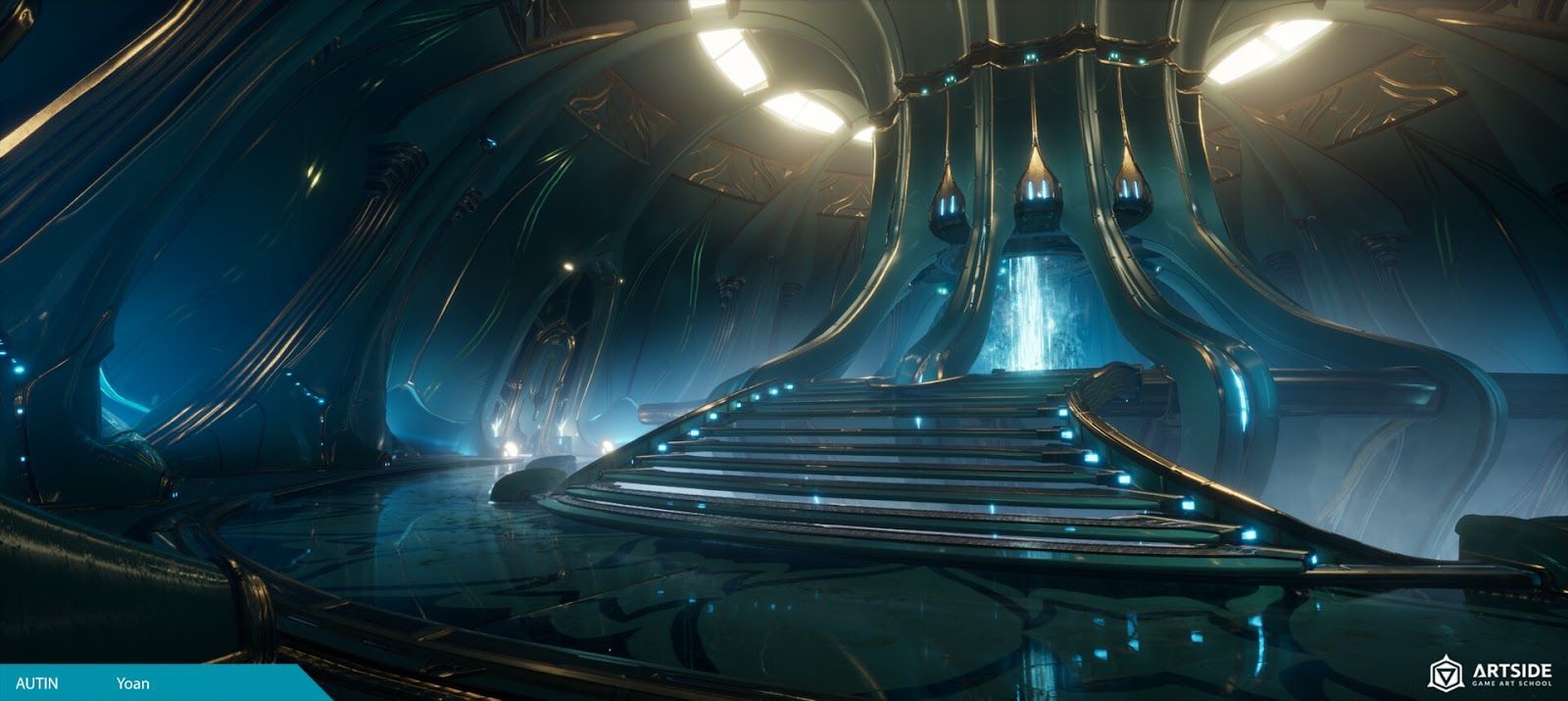
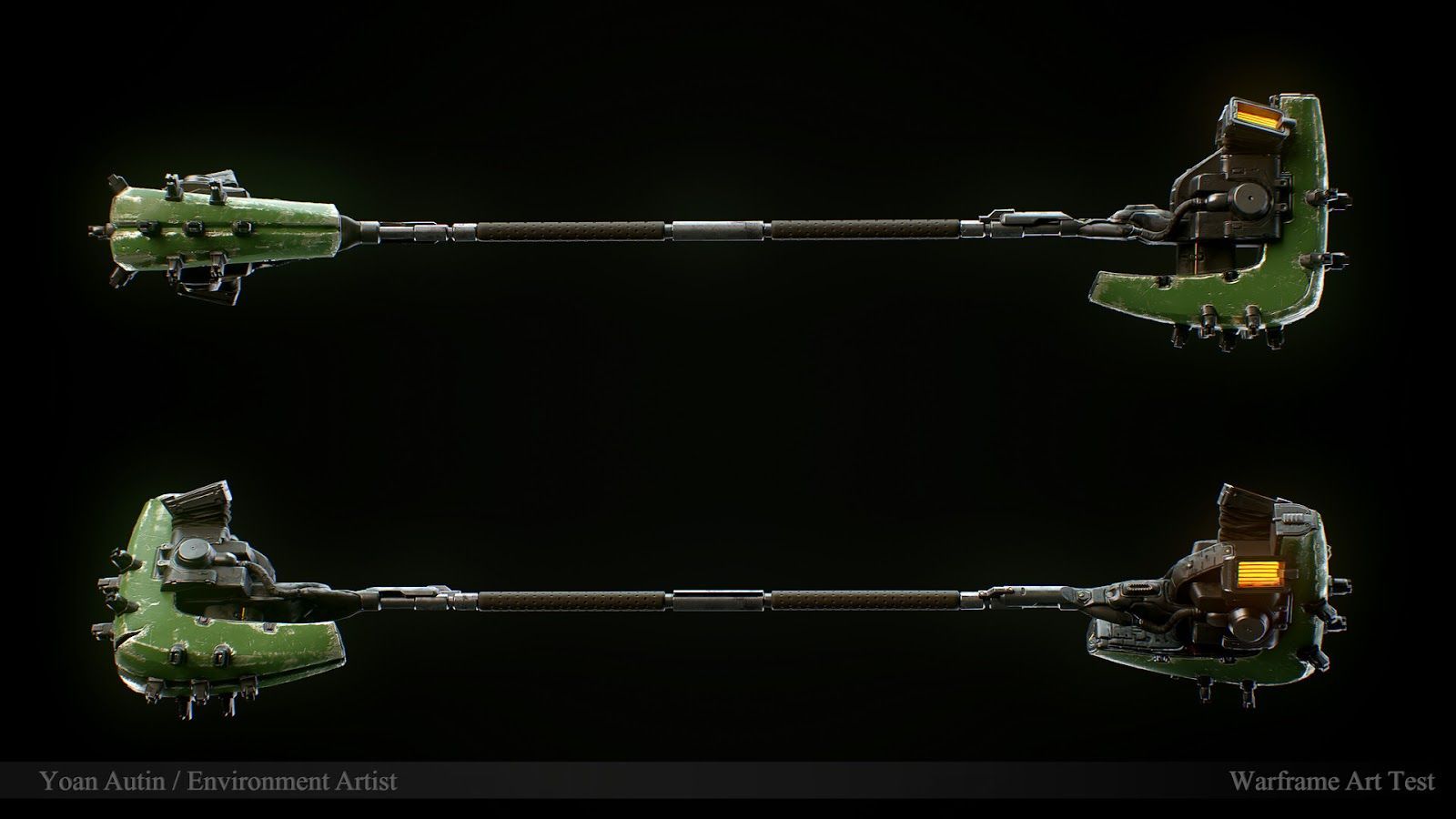
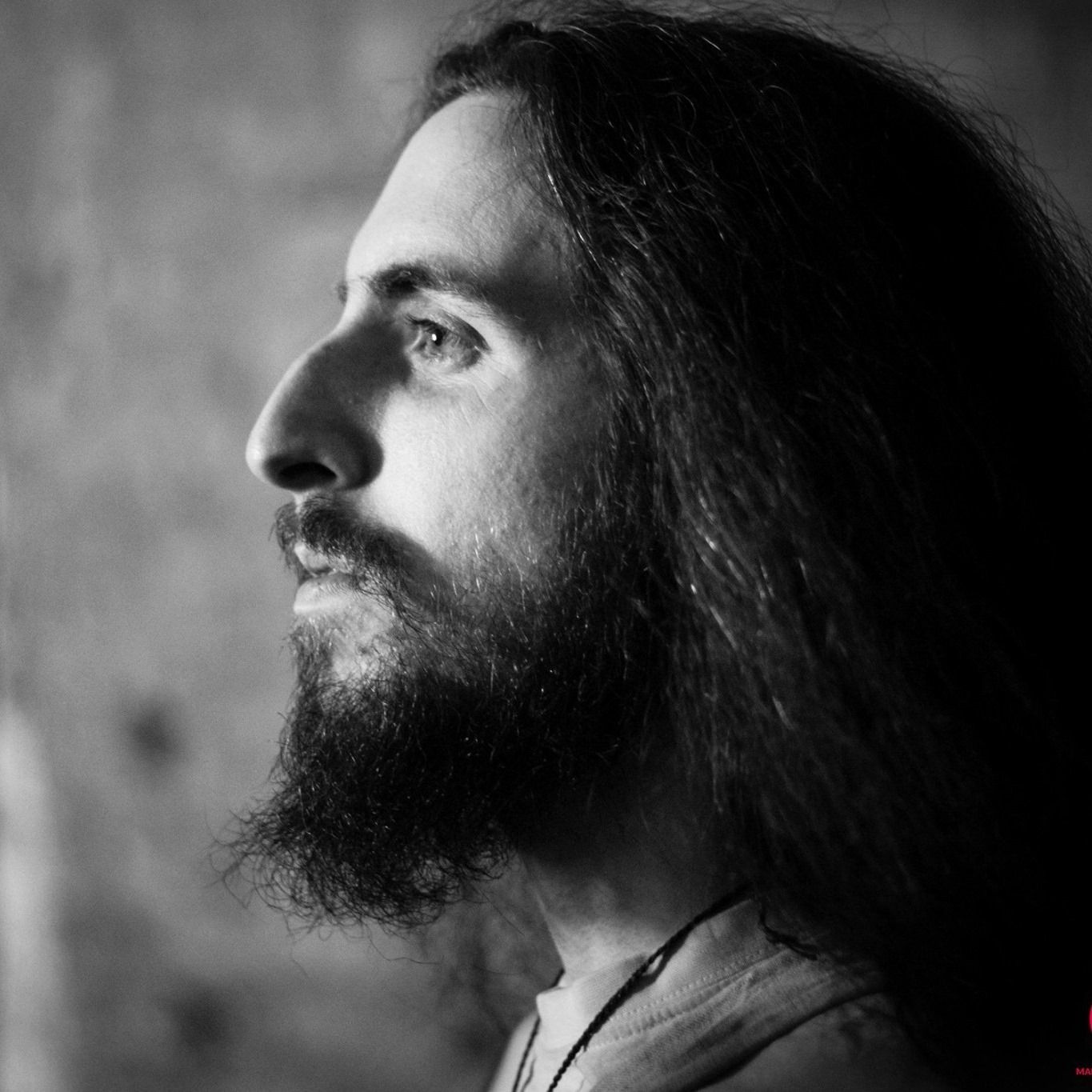
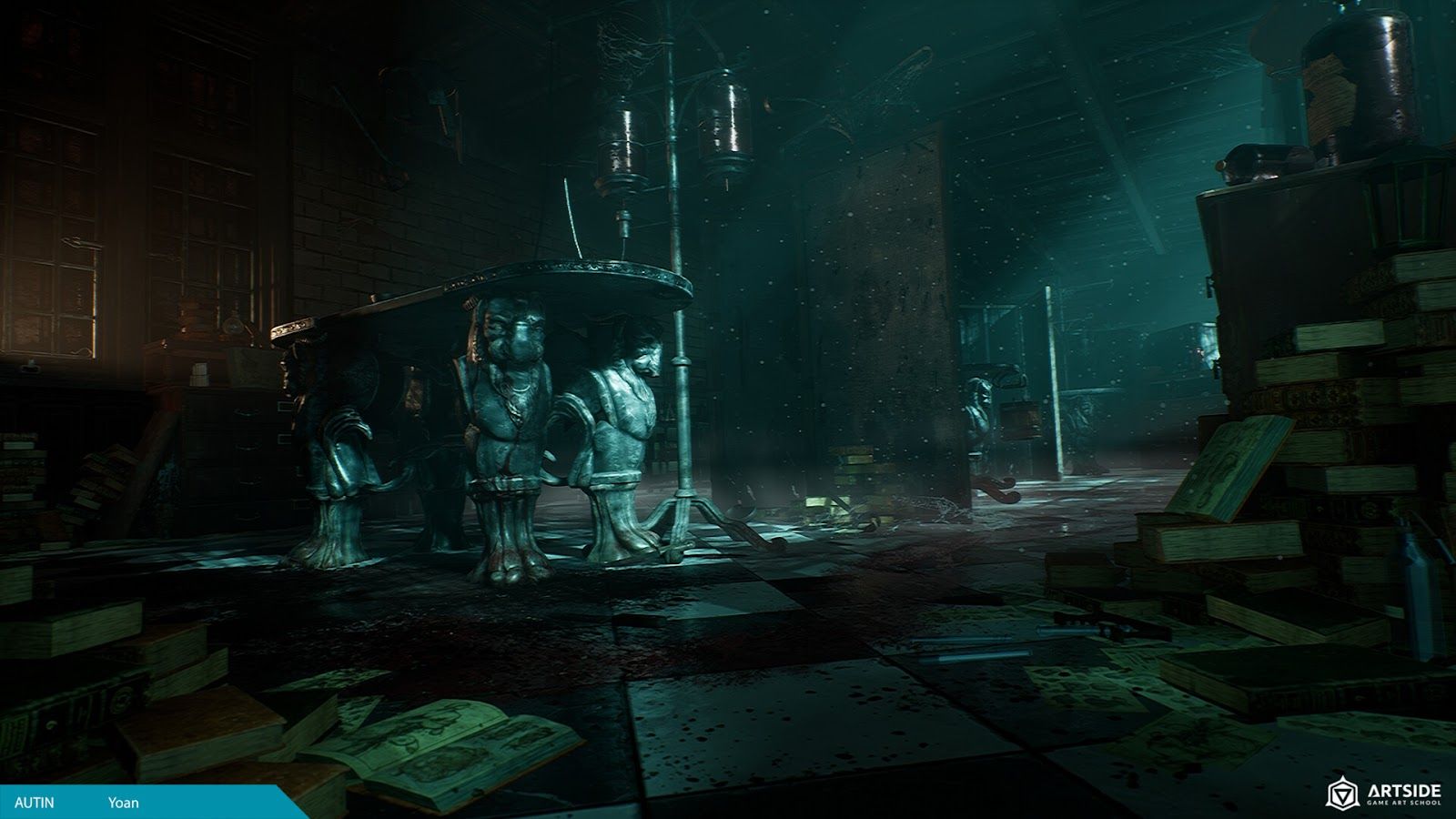
Without a school however, you can still find all you need on the internet. There are so many tutorials that can help you to create your own game. If you are good at what you do, it’s not a problem if you don't have a formal education.
Typically we will do fixes on assets: add a collision, fix a UV, do the lightmap, etc. This a positive thing, as we learn a lot about how others have created these assets, and we are exposed to a range of assets as well.
We will also be tasked with creating smaller, less hero assets. In time, we move on to bigger or more complex assets.
Creativity, interest in the project, good communication, autonomy.
As I come to the end of the project, I get my inspiration from all the other things created for the game. Going through all the levels of a game, stimulates new ideas.
My advice would be to create a room in the universe that you love the most. First, because it will take you a long time to finish it, so you better love what you are working on!
Secondly, it’s because a room is simpler for lighting and the storytelling. You can create a “small” space, but nicely done. Write the story of the room, create a quick sketch of what you have in mind and do a block out. Next, give more and more detail.
Never stop. If you want to work as an artist, you have to practice a lot. It can be demoralising to see all these beautiful projects on ArtStation when you only have a chair asset in your repertoire, but all great scenes start with a cube.
If you love to create, keep going. You will become a great artist.
I don't know! I’m here because of the time that took me to be here. I am sure about a thing, the little boy I was would be amazed by what I can do now, and that 's all I need to know!